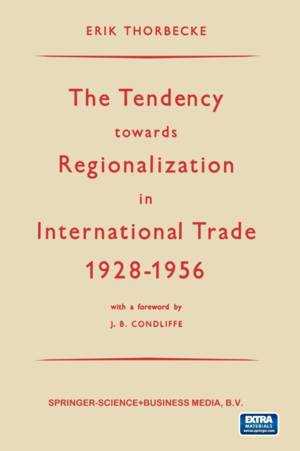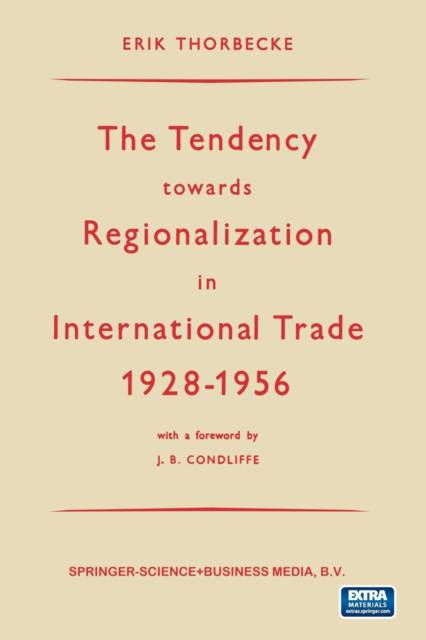
- Afhalen na 1 uur in een winkel met voorraad
- Gratis thuislevering in België vanaf € 30
- Ruim aanbod met 7 miljoen producten
- Afhalen na 1 uur in een winkel met voorraad
- Gratis thuislevering in België vanaf € 30
- Ruim aanbod met 7 miljoen producten
Zoeken
The Tendency Towards Regionalization in International Trade 1928-1956
Erik Thorbecke
Paperback | Engels
€ 83,95
+ 167 punten
Omschrijving
Professor Erik Thorbecke's study, here published, continues the empirical work undertaken by Folke Hilgerdt for the League of Nations. It is a study of actual trade and payments derived laboriously from the voluminous statistical data published by national governments and international institutions. The col- lection, analysis and interpretation of this mass of data involved much patient industry, but in the process of brooding over the detail a truer understanding of the complex structure of world trade was gained than could be achieved in any other way. Trade of course is nearly always bilateral. When goods are re-exported they are, for the most part, refashioned and changed into essentially new utilities. What is multilateral or bilateral or regional in a system of international trade is the method of payment. The justification for multilateralism is the opportunity it affords for countries to specialize, so that one country may use the foreign exchange earned by its exports to buy imports from a third country. Indeed this statement in terms of countries obscures the ultimate realities. In a free multilateral system it is individuals who import and export. When they can freely buy and sell the foreign exchange acquired or required for their transactions, payments are multilateral and the network of trade extends widely across political boundaries. What Mr. Thorbecke shows is that political controls of pay- ments have confined more trade within restricted channels.
Specificaties
Betrokkenen
- Auteur(s):
- Uitgeverij:
Inhoud
- Aantal bladzijden:
- 223
- Taal:
- Engels
Eigenschappen
- Productcode (EAN):
- 9789401504249
- Verschijningsdatum:
- 1/01/1960
- Uitvoering:
- Paperback
- Formaat:
- Trade paperback (VS)
- Afmetingen:
- 156 mm x 234 mm
- Gewicht:
- 344 g

Alleen bij Standaard Boekhandel
+ 167 punten op je klantenkaart van Standaard Boekhandel
Beoordelingen
We publiceren alleen reviews die voldoen aan de voorwaarden voor reviews. Bekijk onze voorwaarden voor reviews.








